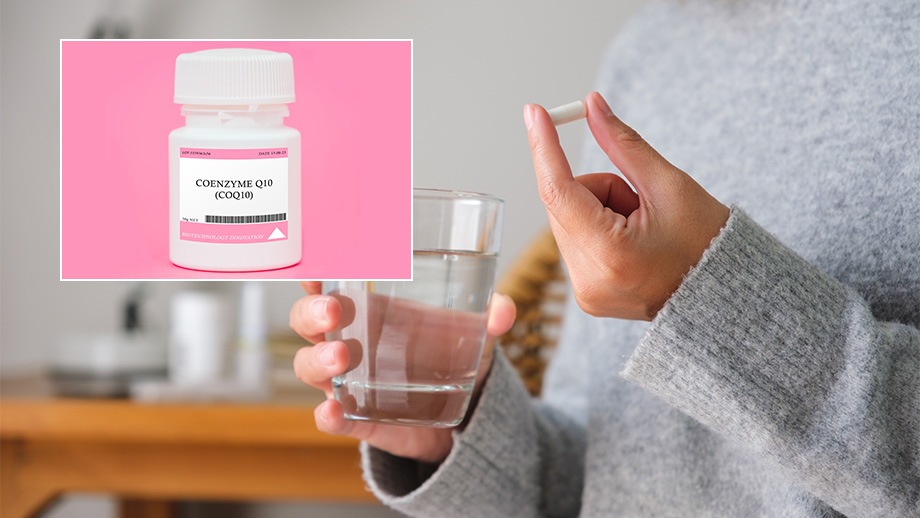One of the hot topics in managing PCOS revolves around the use of inositol vs metformin.
High androgen production, insulin resistance, and other hormonal imbalances drive polycystic ovarian syndrome. These factors often contribute to or exacerbate each other in a vicious cycle. Improving these imbalances and levels can then lead to improvements in your PCOS.
So, how do inositol and metformin work, and which is better for treating PCOS? Let’s dive into the science and see how these two contenders measure up.
Round 1: Inositol and PCOS
While metformin has been the leader of PCOS management prescribed by most doctors, inositol seems to be a new contender. And some studies show it may even beat out metformin. But what is inositol, how does it work for PCOS, and is it safe? Let’s dig a little deeper to learn about this natural treatment option.

Inositol and PCOS
What Is Inositol?
Inositol is a naturally occurring compound that’s been getting a lot of attention for its potential in PCOS management. Inositol is a naturally occurring sugar alcohol found in various foods such as fruits and beans and tissues throughout the body, like the brain. There are nine inositols. Myo-inositol and D-chiro-inositol are the most common.
This naturally occurring sugar plays a crucial role in several cellular processes. It works as a second messenger for many hormones, including insulin and follicle-stimulating hormone (FSH). Thus, defects in this signaling can lead to insulin resistance, lack of ovulation, and other symptoms. Check out our article on inositol to learn more.
Many studies have highlighted inositol’s ability to improve insulin sensitivity, regulate menstrual cycles, and promote ovulation. But let’s learn more about how that happens.
How Does Inositol Work in PCOS?
Inositol works in several ways in PCOS, but mainly through insulin sensitizing. Insulin plays a crucial role in the body, which needs optimal levels to function properly. It can also stimulate the ovaries to produce high amounts of androgens, which worsens insulin resistance. However, inositol can balance these levels, promote FSH signaling, and improve ovarian function.
Inositol is essential in promoting and releasing healthy and mature oocytes during ovulation. In addition to improving insulin sensitivity, inositol may also have other positive effects on the ovaries.
It can help regulate menstrual cycles, reduce the production of androgens that can cause unwanted hair growth and acne, and improve ovulation. Several studies also found that it improved fertility, pregnancy outcomes, inflammation, and lipid parameters. All of these are important factors in managing PCOS.
Inositol is a natural and essential sugar found in the body and in food. This draws many people to choose inositol over prescription medications. Finally, doctors recommend reviewing its effectiveness around 3 to 6 months.
What Are the Side Effects of Inositol?
Inositol is a safe and natural compound that has minimal side effects. Some may experience mild gastrointestinal problems such as gas, stomach upset, diarrhea, or nausea. However, these symptoms are quite rare. It is also safe while pregnant and breastfeeding.
Additionally, some may experience allergic reactions, though this is also rare. Inositol might interact with certain medications, such as lithium, used to treat bipolar disorder.
It’s crucial to discuss any supplements you plan to take with your healthcare provider, especially if you take other medications.
Round 2: Metformin and PCOS
You may have heard of metformin as the leading type 2 diabetes medication. But it is prescribed for much more than that. Many doctors push metformin on PCOS patients. Let’s look at what metformin is, how it works in PCOS, and if it’s safe. Then, you may see why doctors recommend it.

Metformin and PCOS
What Is Metformin?
Metformin is a prescription medication that has long been a key player in PCOS management.
It primarily works by improving the body’s sensitivity to insulin. It helps cells respond better to insulin, allowing them to take up and use glucose (sugar) from the bloodstream more effectively.
Improving blood sugar and insulin resistance can positively impact ovulation and menstrual regularity, which are often disrupted in PCOS.
You typically take metformin in the form of pills or extended-release tablets. Doctors usually prescribe it in conjunction with dietary and lifestyle changes to manage blood sugar levels effectively.
How Does Metformin Work in PCOS?
Women with PCOS often have high levels of androgens (male hormones) like testosterone. Metformin can help bring these hormone levels back into balance. Lowering insulin levels can indirectly reduce the production of androgens, alleviating unwanted symptoms like excess hair growth and acne.
Metformin can lead to a higher ovulation rate and improved insulin sensitivity. This suggests that metformin could be a helpful tool in addressing some of the core issues associated with PCOS, such as infertility and insulin resistance.
According to an article in the National Institutes of Health, metformin’s insulin-sensitizing effect also improves menstrual regularity. And it prevented androgen production, leading to a decrease in circulating testosterone and other hormones.
It can also lead to reductions in body mass index, fatty tissue, and general weight loss. The study even states that metformin can lower bad cholesterol and reduce your risk of cardiovascular disease, though more research is needed.
The study concluded, “Based on the available evidence, however, metformin does not replace the need for lifestyle modification among obese and overweight PCOS women. The evidence categorically does not encourage its use to help weight loss either, although it may be useful in redistributing adiposity according to some evidence.”
Metformin has had positive outcomes in treating PCOS by targeting the underlying drivers. However, it’s not perfect and takes a longer time to work. But when combined with other treatment options, such as diet and exercise, it can help improve ovulation, insulin resistance, and period regularity.
Finally, there is no set timeframe on how long you can take metformin for PCOS. However, some doctors recommend reviewing treatment after 6 months with no results.
What Are the Side Effects of Metformin?

Metformin Side Effects: Nausea
Metformin is generally considered a safe medication for most people, but like any medication, it can have side effects. It’s important to note that not everyone will experience these, and some individuals may experience them to varying degrees.
Common side effects of metformin include nausea, vomiting, diarrhea, stomach cramps, or flatulence. However, starting with a low dose and gradually increasing it can help reduce some symptoms.
Additionally, some individuals may experience a decreased appetite or a metallic or sour taste in the mouth.
Prolonged use of metformin may also reduce the absorption of vitamin B12, which could lead to a deficiency over time. A healthcare provider may monitor B12 levels and recommend supplements if necessary.
If you experience any unusual or severe side effects while taking metformin, it’s essential to contact your healthcare provider promptly. They can help adjust your dosage, switch to an extended-release formulation, or explore alternative treatments if necessary.
The Showdown: How Do Metformin and Inositol Compare?
While both inositol and metformin show promise in PCOS management, they have distinct mechanisms and potential benefits. Here’s the deal: PCOS isn’t a one-size-fits-all condition. What works wonders for one person might not yield the same results for another.
A randomized controlled clinical trial compared metformin and myo-inositol in treating several aspects of PCOS. The 6-month study examined fasting glucose, weight, cycle length, lipids, testosterone, adverse effects, quality of life, and depression scores.
Patients received 2 milligrams of myo-inositol and 200 milligrams of folic acid twice daily. The metformin group received two 500-milligram tablets twice daily.
Metformin and inositol both lowered insulin resistance and BMI at comparable rates. However, metformin led to more weight loss at 6.3 kilograms versus 2.3 kilograms from the myo-inositol group. They also both reduced menstrual cycle length similarly.
However, inositol improved ovulation rates more than metformin because it is a second messenger in the FSH signaling pathway. This means the follicles can mature into a healthy egg. Metformin also improved ovulation but through its insulin-sensitizing effects.
Thus, inositol might be more effective for fertility, ovulation, and period regularity compared to metformin.
The study found that both had comparable effects on cholesterol, blood sugar levels, insulin, depression scores, and menstrual regulation. However, metformin had a significantly higher amount of gastrointestinal side effects compared to inositol. These side effects were serious enough to have some participants pull-out from the study.
The study also showed that a combination of metformin and inositol could be beneficial in regulating weight and insulin resistance, among other factors. However, we need more research on using both due to how they lower blood sugar levels. You don’t want them too low.
Is Inositol or Metformin Best for Treating PCOS?

Inositol or Metformin for PCOS?
So, who wins the inositol versus metformin battle? The truth is, there might not be a clear winner. Both inositol and metformin have scientific backing for their potential benefits. And inositol is just as effective as metformin for treating many symptoms of PCOS.
Some healthcare providers may recommend starting with inositol, especially if fertility and menstrual regulation are the primary concerns. Others may suggest metformin, particularly if you have more pronounced insulin resistance or diabetes.
However, inositol had the same effectiveness, and even slightly better in some aspects, compared to metformin. It also is a natural compound, which some people prefer over prescription medications. Additionally, when considering the side effects of metformin use, inositol seems to win out.
In some cases, a combination of both inositol and metformin may be prescribed to address multiple aspects of PCOS. The choice ultimately comes down to an individualized treatment plan developed in consultation with your healthcare provider.
Where Can You Buy Inositol?
You can find inositol in many supplement and vitamin shops or whole food stores. You can also find some online. However, make sure you buy from reputable companies. Here at Health & Balance Vitamins, you can find a powder form of pure myo-inositol. Simply add it into any drink and have it on an empty stomach.

How to Choose the Right Option
Remember, PCOS management is a journey. It’s about understanding your body, making informed choices, and embracing a holistic approach that includes lifestyle changes, proper nutrition, and possibly the assistance of these supportive compounds.
To ensure the safe use of inositol or metformin to treat your PCOS, follow your healthcare provider’s recommendations regarding the type, dose, and duration. Tell them about any underlying medical conditions or if you take other medications.
Always consult with a healthcare professional before starting any new regimen, including inositol, to determine its suitability for your specific health needs and circumstances.
Have you tried metformin or inositol for your PCOS? What was your experience? Let us know below!












